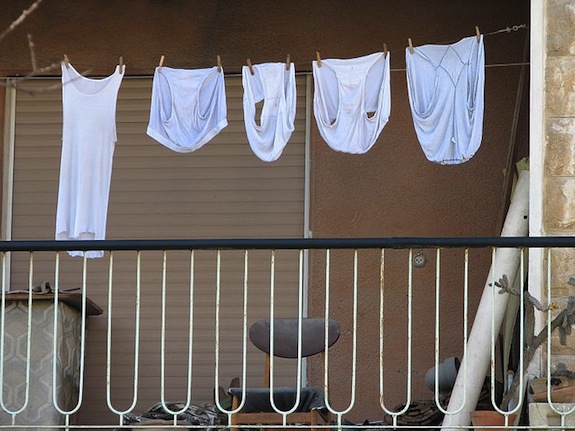Why Your Lucky Underwear And Pre-Game Routine Might Actually Work
One in three students in the UK wears lucky underwear. And while you might laugh their habits off, there’s a reason that those rituals might actually work

Lucky underwear? Image: TLVshac
One in three students in the UK wears lucky underwear, according to a new survey by Bic pens. And while you might laugh their habits off, there’s a reason that those rituals might actually work.
At Scientific American, researchers Francesca Gino and Michael Norton explain some of their research on rituals and behavior:
Rituals performed after experiencing losses – from loved ones to lotteries – do alleviate grief, and rituals performed before high-pressure tasks – like singing in public – do in fact reduce anxiety and increase people’s confidence. What’s more, rituals appear to benefit even people who claim not to believe that rituals work. While anthropologists have documented rituals across cultures, this earlier research has been primarily observational. Recently, a series of investigations by psychologists have revealed intriguing new results demonstrating that rituals can have a causal impact on people’s thoughts, feelings, and behaviors.
And there are studies to support this. If you give someone a “lucky golf ball,” they golf better. If you tell someone you’ll “cross your fingers for them,” they’ll do the task better. If you help a tennis player mentally train, they’ll play better. People who use rituals to stop smoking or ward off bad luck truly believe they work. And just believing might be enough to at least take the pressure off and make people relax and succeed just a bit more.
There’s even an argument that rituals are what bond us together, what make us human and what keep culture and society intact. Nature reports:
Rituals are a human universal — “the glue that holds social groups together”, explains Harvey Whitehouse, who leads the team of anthropologists, psychologists, historians, economists and archaeologists from 12 universities in the United Kingdom, the United States and Canada. Rituals can vary enormously, from the recitation of prayers in church, to the sometimes violent and humiliating initiations of US college fraternity pledges, to the bleeding of a young man’s penis with bamboo razors and pig incisors in purity rituals among the Ilahita Arapesh of New Guinea. But beneath that diversity, Whitehouse believes, rituals are always about building community — which arguably makes them central to understanding how civilization itself began.
Whitehouse is trying to catalogue the world’s rituals. Here he is talking on the Nature Podcast about the project:
Scientists are still trying to understand which rituals we cling to, why, and what they might be doing to us. But for now, be proud of your lucky underwear.
More from Smithsonian.com:
/https://tf-cmsv2-smithsonianmag-media.s3.amazonaws.com/accounts/headshot/Rose-Eveleth-240.jpg)
/https://tf-cmsv2-smithsonianmag-media.s3.amazonaws.com/accounts/headshot/Rose-Eveleth-240.jpg)